This was the first of two citizen forums for city council to hear about the initiative
VANCOUVER — Is Stronger Vancouver a necessary plan to get the city out of “survival mode” and prepare it for continued growth, or a “pie-in-the-sky” proposal that prioritizes wants over needs?
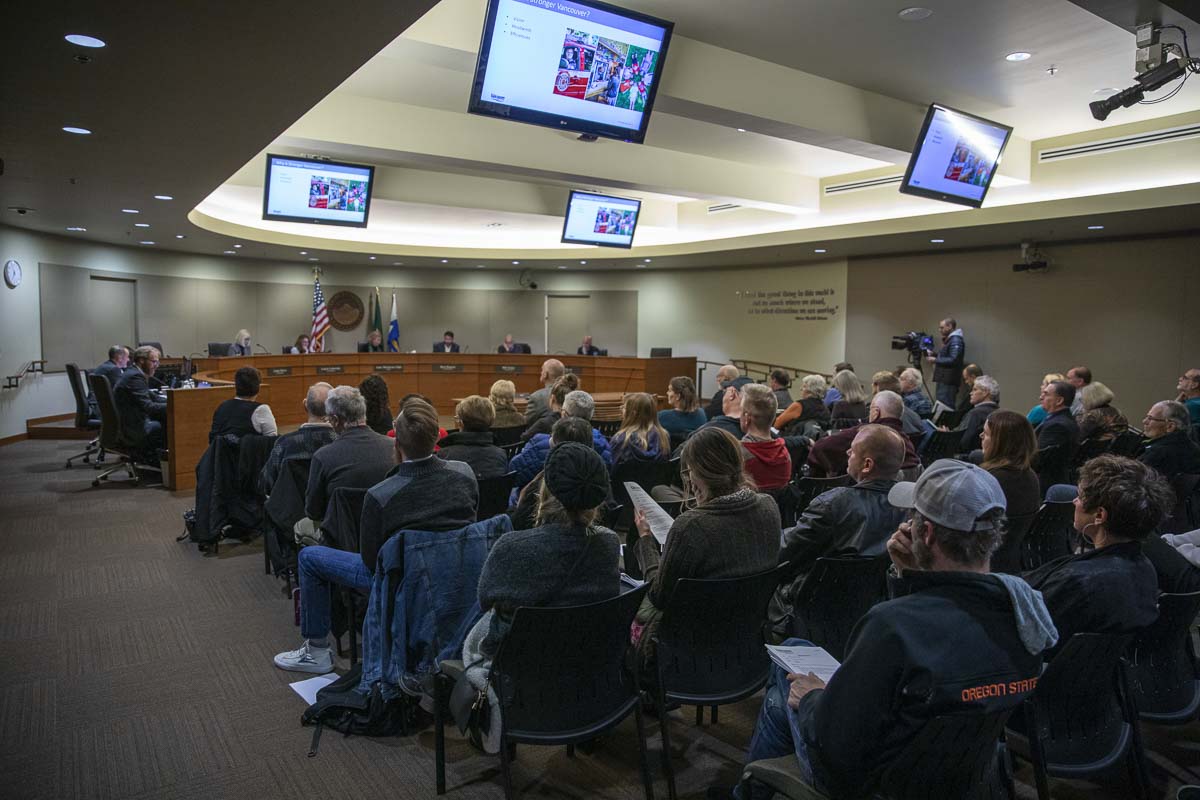
Those competing points of view were both present during the first of two citizens forums on the topic held in front of Vancouver City Council on Monday night. Over a dozen people showed up to share their opinions on the $23.5 million proposal.
That dollar figure has been trimmed somewhat from the original $30.1 million recommended by an executive steering committee earlier this Summer, as council has continued to debate various programs and methods of paying for them
Stronger Vancouver represents a wide ranging series of proposals the city hopes will lead to better public safety, improved parks, more development, better jobs, and more affordable housing.
Among the list of proposed projects are seven new neighborhood parks, two new community parks, as well as upgrades to two other community parks. 14 other parks would have outdated playground equipment replaced.
The city also hopes to renovate or replace five fire stations, and build a new city operations center. The existing one was built in the 1950s and is considered largely inadequate and outdated.
Stronger Vancouver also includes plans to redevelop four areas of the city to create locations for living wage jobs, including The Heights District, Section 30, a former gravel pit in east Vancouver, Lower Grand, and the Fourth Plain business district.
It would also include traffic improvements, bike and pedestrian mobility enhancements, and $2.3 million for a new homeless resource team.
In remarks ahead of Monday’s community forum (the first of two), Vancouver City Manager Eric Holmes noted that Stronger Vancouver represents the dream of a city that would be “the most livable city on the Columbia River.”
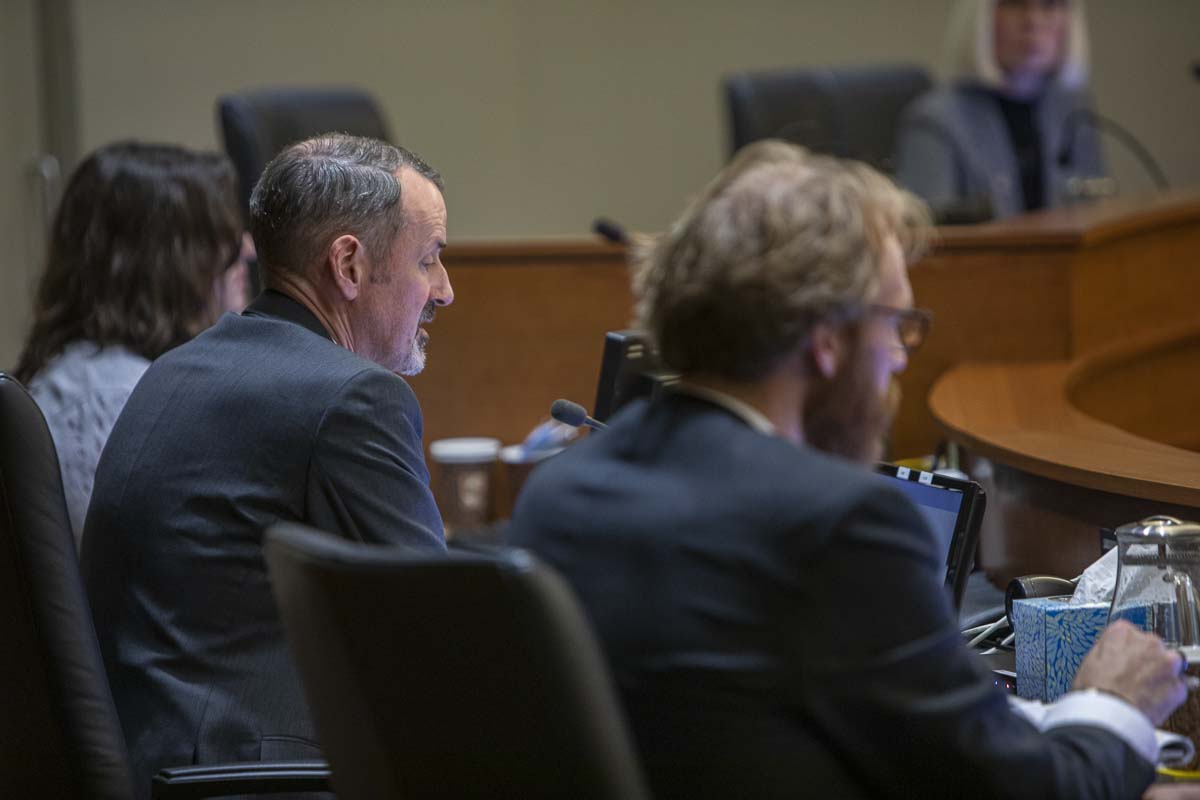
“There have been a series of headwinds that accumulated to the city achieving that vision fully,” said Holmes, referencing decisions in the early 1990s to roll back the Business and Opportunity tax in the city, as well as statewide changes to how cities could utilize property and other taxes, and then the Great Recession which hit Clark County hard in 2008.
“So when you look at that, juxtaposed with the rate of growth that we’re experiencing as a community,” said Holmes, “and are anticipated to continue to experience, it structurally challenges our ability to deliver services at a level that is expected by a growing community.”
Holmes said Vancouver’s population has been growing by an average of 3,000-3,500 people per year in the past decade, leading to a more diverse community with a different set of expectations.
The city began addressing some of those concerns through a series of initiatives starting in 2012 with upgrades to fire and emergency medical services. Other revenue sources have been brought online to fund affordable housing, and police staffing.
Holmes noted the city is still awaiting the final results of Initiative 976, which voters approved earlier this month. It would limit cities to $30 car tabs, and require voter approval for any amount above that. The change could have significant impacts on cities where car tab fees have been used to fund street improvements, including Vancouver.
Leading up to the proposed package, the city held a series of open houses, along with several online surveys. City Council members, however, had expressed a desire to hear more from the public, so Holmes scheduled the two citizen forums. The second will be Dec. 9 at Firstenburg Community Center.
Tax fatigue a factor
Funding for the Stronger Vancouver initiative would come from a variety of sources, including property taxes, utility fee increases, business fees, and other sources. A plan to re-implement the B&O tax was scrapped earlier in the process.
While Vancouver resident R.J. Murdock applauded the vision shown by Holmes and the city council, he accused them of presenting the appearance of public input while shifting the primary financial burden onto the shoulders of the city’s property owners, rather than businesses.
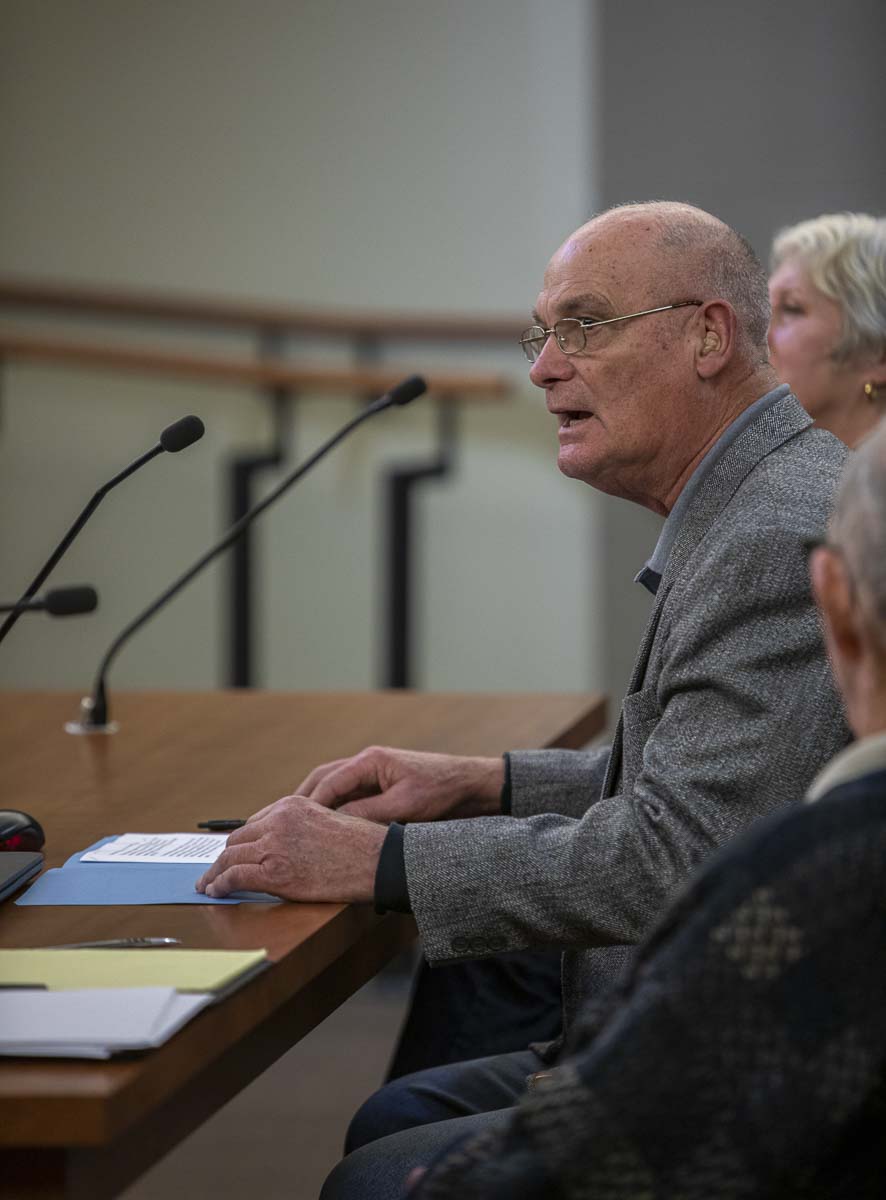
“I supposedly own my own house free and clear,” said Murdock. “However, I will be losing my home before my death due to the continuing escalation of property taxes.”
Vancouver resident Sam Bateman used stronger language, calling the city’s proposal “pie-in-the-sky” and “frivolous.”
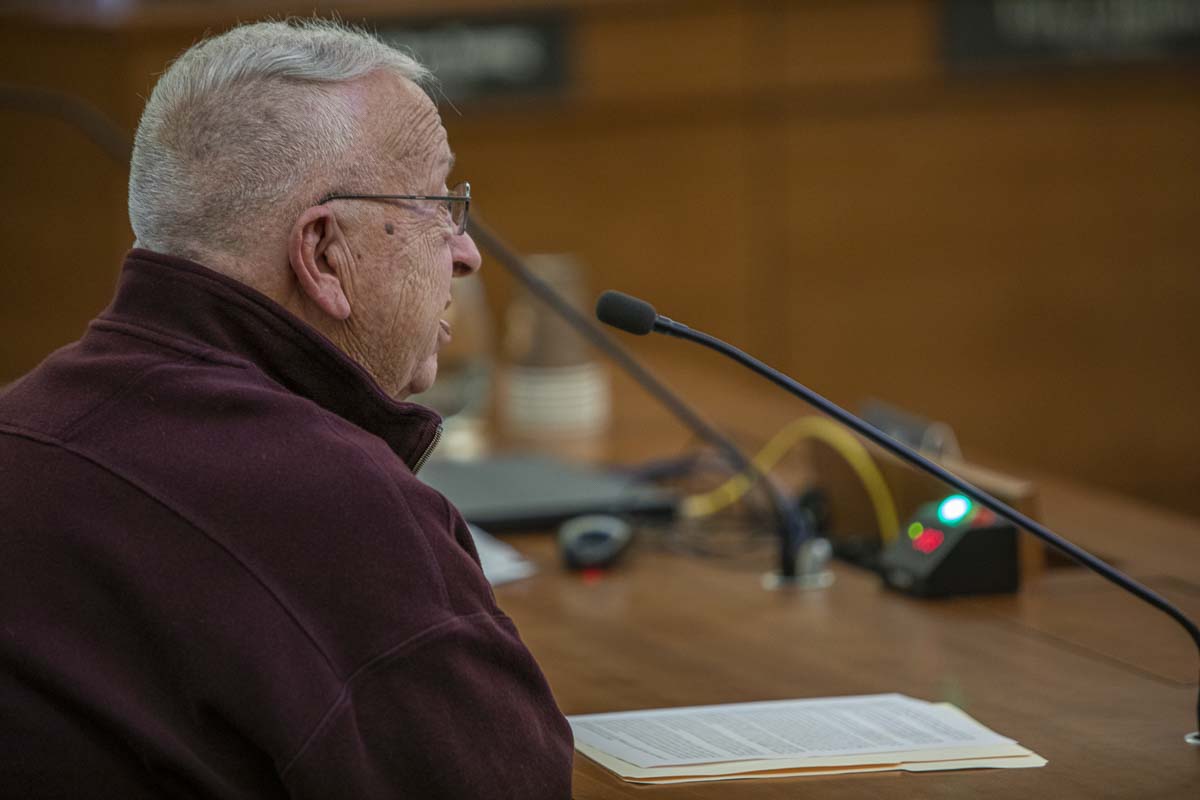
“In America we’re already exposed to 48 different taxes, not counting what you call fees, with more dreamed up every day,” said Bateman. “Don’t you get it? We’re already being taxed into the poorhouse.”
Not everyone was critical of the Stronger Vancouver proposal, however. Margaret Milem noted the months spent by the 10 committee members researching options, talking to stakeholders, and developing a number of different options for the council to consider.
“I think they did a great job,” said Milem, “and I think the stronger Vancouver initiative has been and is being very well thought through.”
If council ends up approving the current package as presented, voters would ultimately be left to decide on whether they want to approve new property taxes as one of the funding measures. Holmes noted that other funding mechanisms could include increasing the business license surcharge, which is currently $90 per employee.
Businesses urge caution
While the council has removed the idea of a B&O tax, a potential 200 percent Park Impact Fee increase remains on the table. That has prompted words of warning from the Building Industry Association (BIA) of Clark County that such a steep increase could slow growth and exacerbate the city’s housing affordability crisis.
BIA’s proposal has been an inflationary increase to account for levels since the last increase in 2004, then a cost-index system to raise rates going forward.
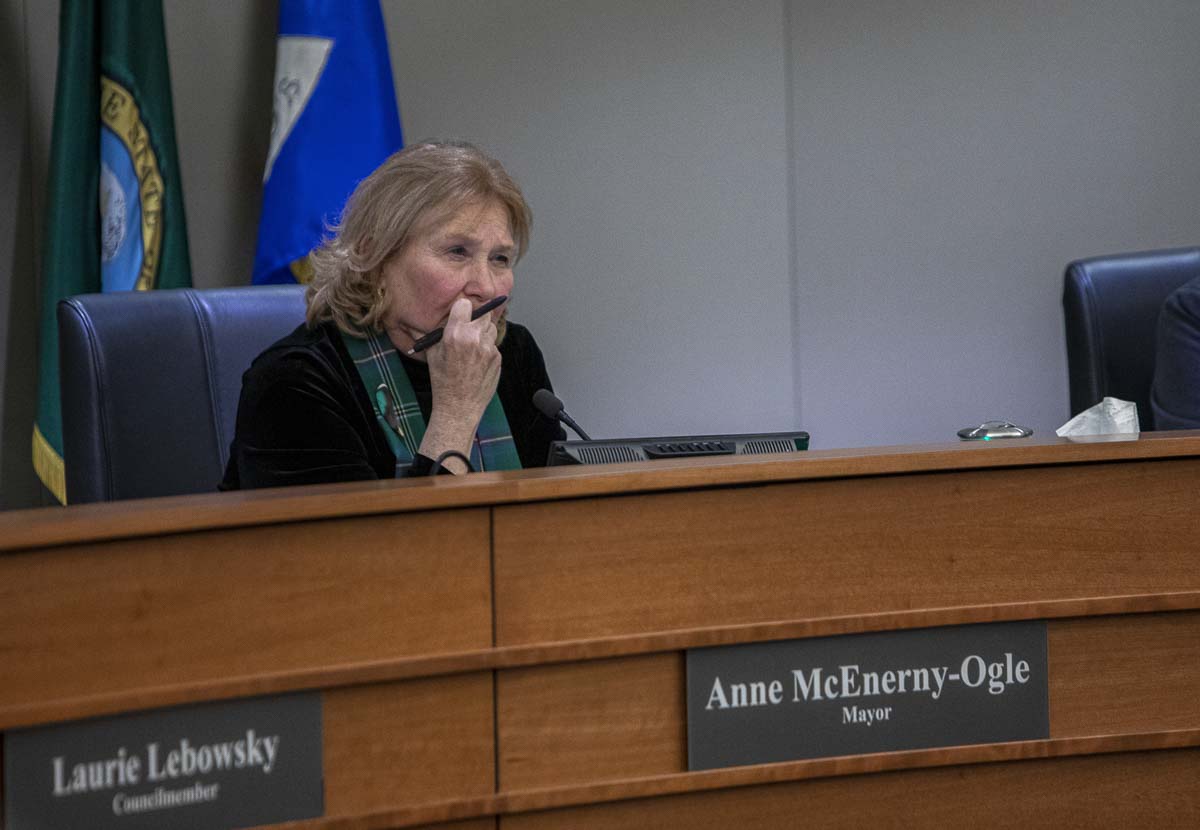
Ryan Steiger with Pacific Lifestyle Homes agreed with Yung, saying increased fees will affect housing affordability.
“As a company, we don’t look to oppose every fee that comes at us. We often find ourselves agreeing with some fees or asking for reasonable fees,” said Steiger.
Glen Yung, another resident and frequent commenter at city council meetings, said the council may need to shift its focus to deal with existing problems before tackling new or upgraded parks.
“We currently have a housing crisis. We have a homeless crisis. I don’t hear any mention of a park crisis,” said Yung. “So it to me is a situation where we need to establish our priorities.”
The Stronger Vancouver proposal does include $2.3 million for the formation of a new Homeless Resource team, but several council members have increasingly said they would like to see more done to address the concerns of citizens over homelessness either as part of the proposal, or in conjunction with it.
Holmes has noted that city council is expected to receive a report put together by homeless outreach nonprofit Alpha Project of San Diego sometime in the next month, and the city’s new Homeless Resource Manager, Jackie St. Louis, has been busy drafting a proposed plan to shift strategies when it comes to addressing the growing issue of homelessness in the city.
To see a rundown of community feedback on the Stronger Vancouver initiative, click here. The Dec. 9 citizen forum is scheduled for 6:30 p.m, at the Firstenburg Community Center at 700 NE 136th Ave.




